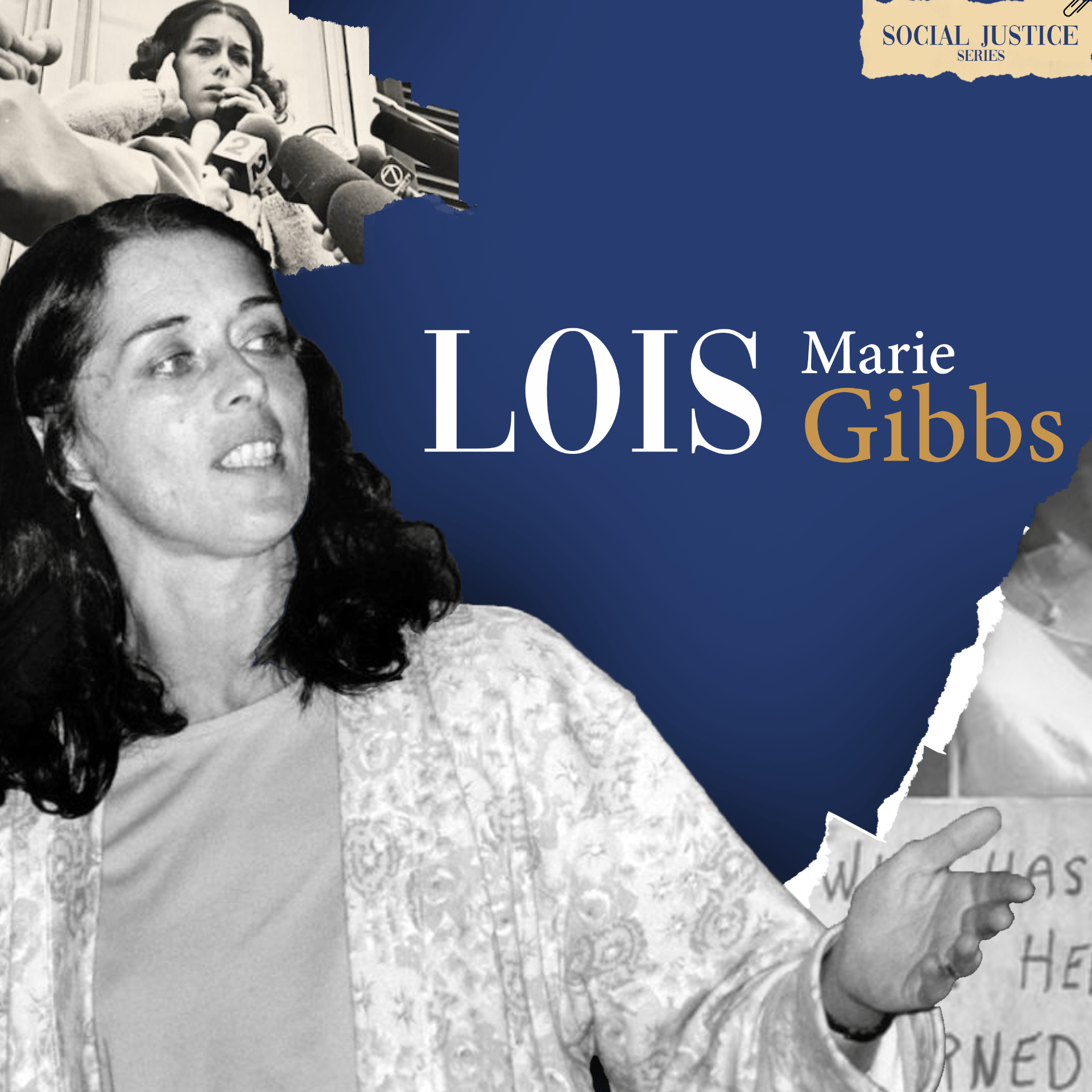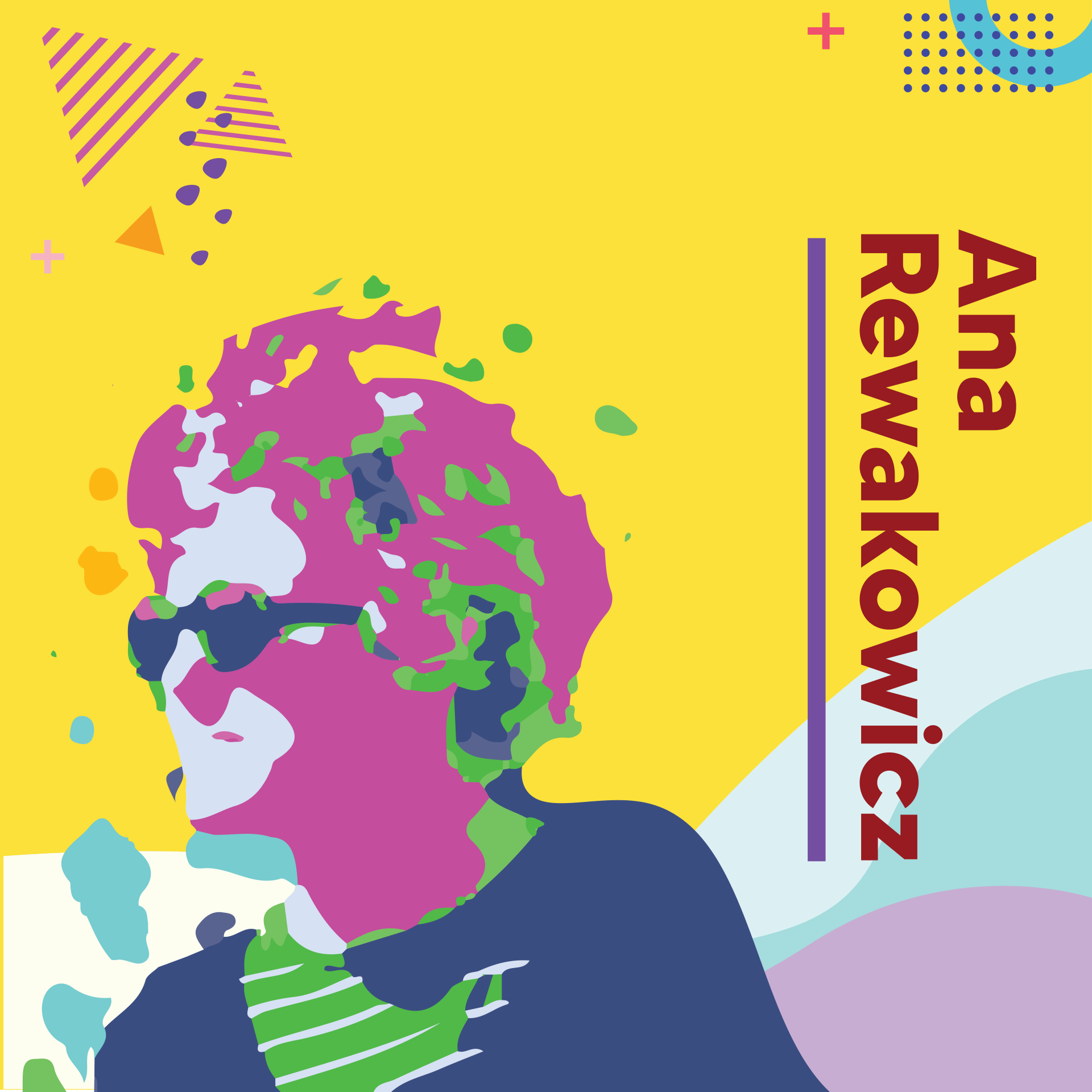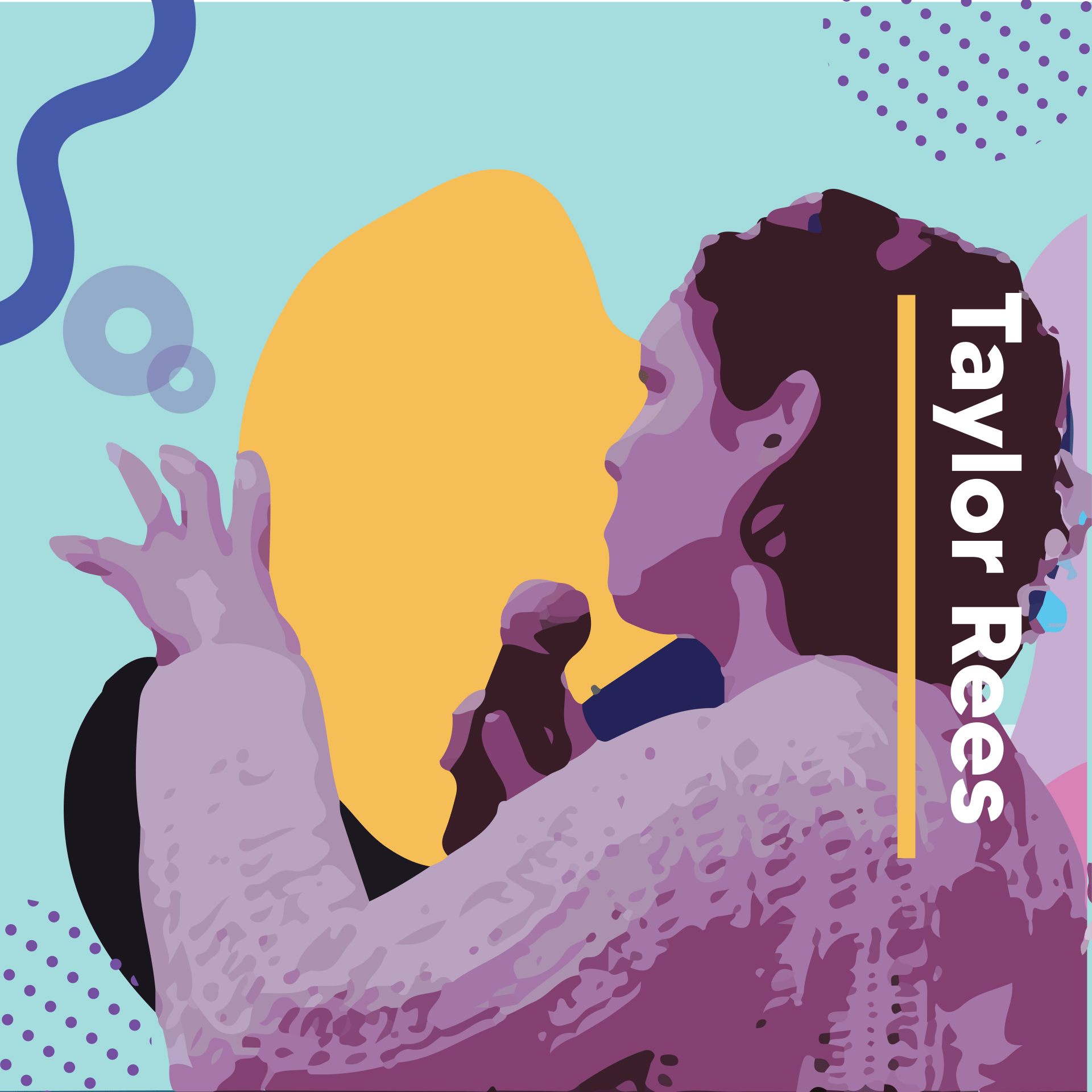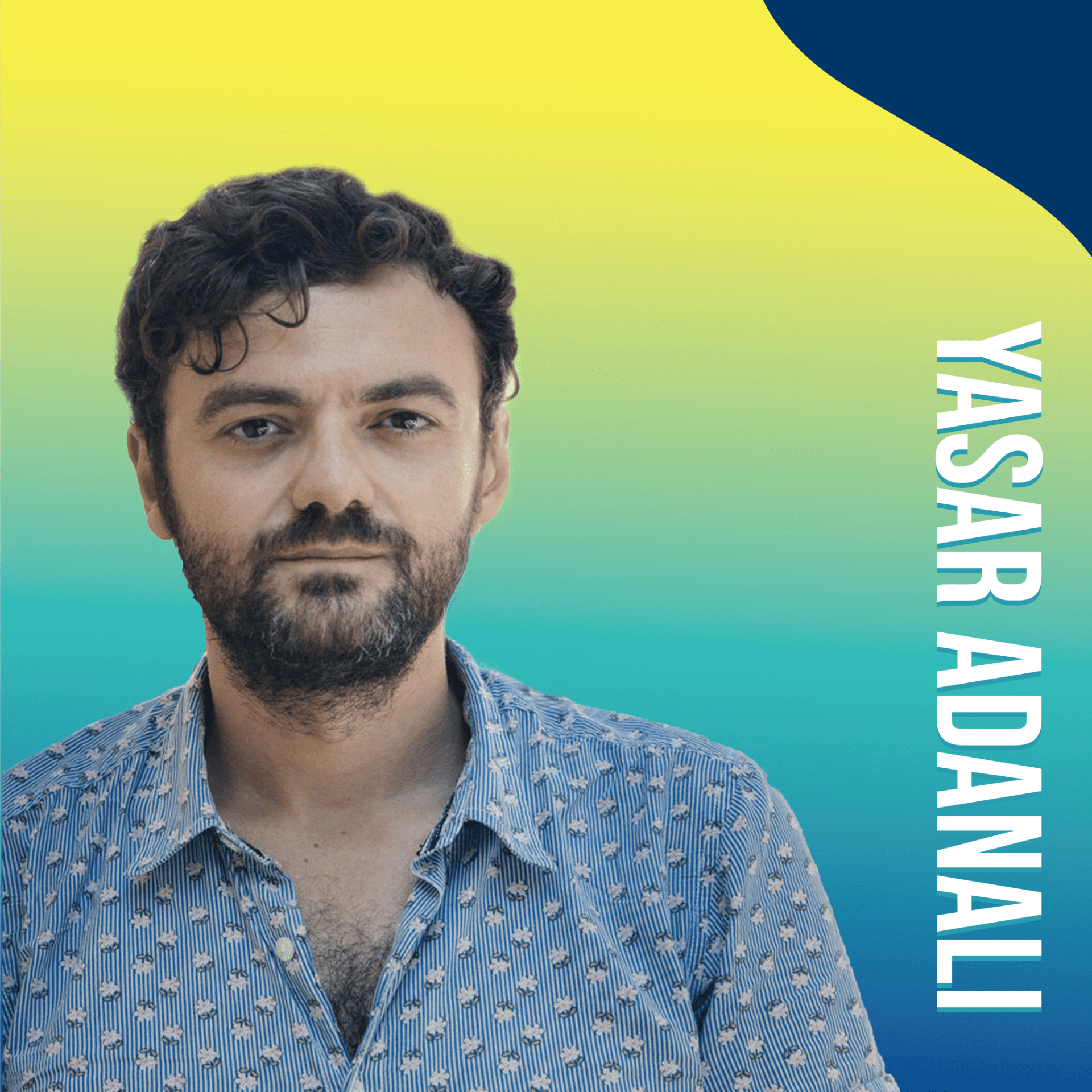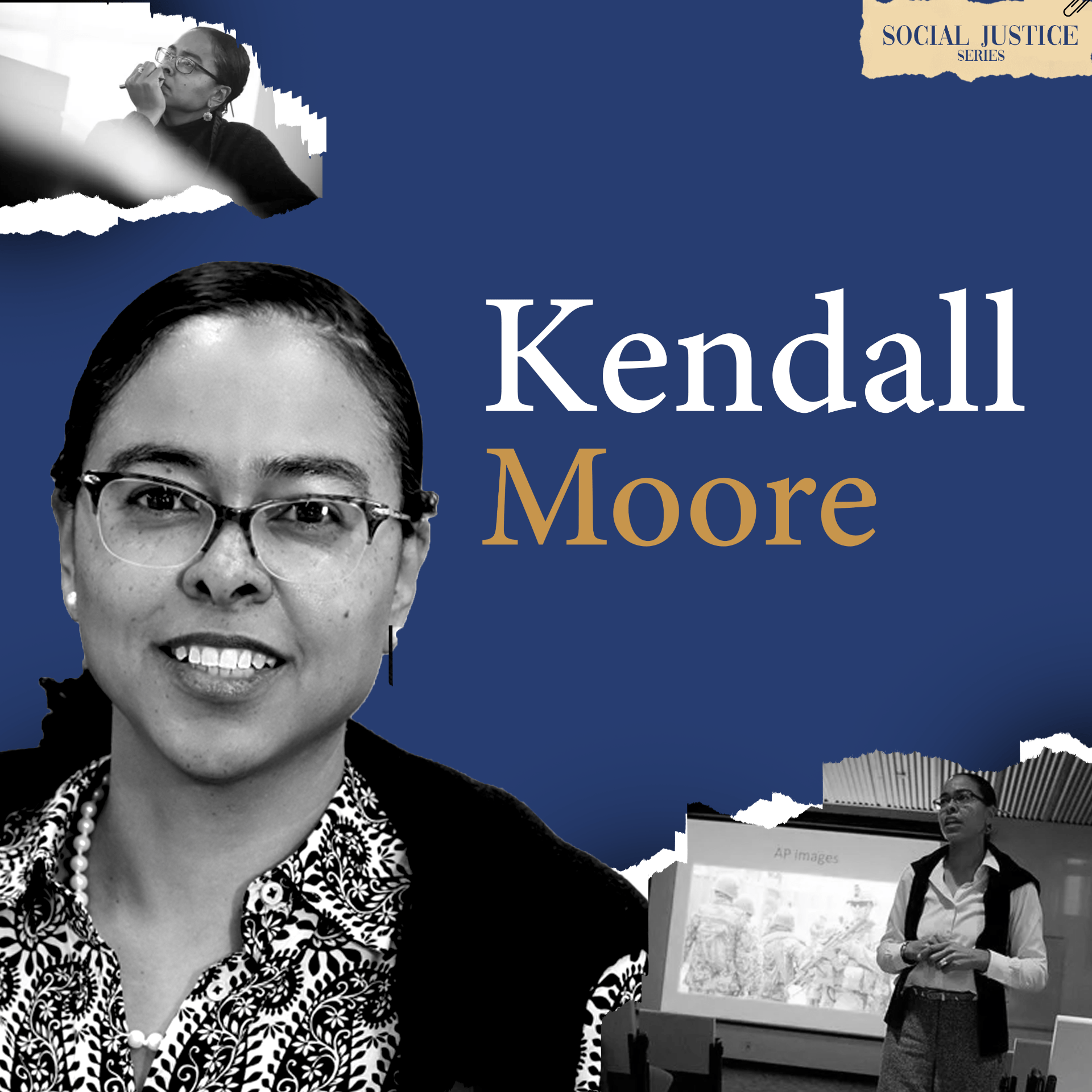
Episode #03
Kendall Moore
on
STEM Justice & Belonging
Join the Global Lab conversation with Professor Kendall Moore on the importance of belonging in STEM education. In this episode, Kendall discusses how our colleges and universities need to create an environment that allows racialized and marginalized students to learn and grow. She highlights institutional obligations to commit to decolonizing STEM.
Hosted by Leslie Dodson, the Global Lab and Department of Integrative & Global Studies, WPI
Kendall Moore on STEM Justice & Belonging
Guest Bio
Kendall Moore is an award-winning documentary filmmaker, and a professor in the Department of Journalism and Film Media at the University of Rhode Island. Professor Moore has been awarded two Fulbright Scholarships, and she has received NSF funding for her film project focusing on efforts to decolonize science. Kendall is also the director of the “Can We Talk? Difficult Conversations with Underrepresented People of Color” series.
Transcript
Scroll to read more
Leslie Dodson 00:05
Welcome to the Global lab social justice podcast where we connect with activists, thinkers and doers, who invite us to help make the world a better place. I’m Leslie Dodson. Today we’re speaking with Kendall Moore and award winning documentary filmmaker and professor at the University of Rhode Island. kendal’s work focuses on efforts to decolonize science. She is the director of the Can we talk difficult conversations with underrepresented people of color series. Kendall, thank you for joining us today. You have a background in metaphysical philosophy and Media Studies. How did you develop an interest in diversity in STEM?
Kendall Moore 00:50
Bridging the connection between the two? Well, the interest in metaphysics came when I was a PhD student, which was pretty recent, I got my PhD in 2018. And what I realized was there was a gap in the literature around blackness and metaphysics. And so I was interested in interrogating that. But at the same time, as a college professor going through issues related to lack of belonging, and sense of belonging for myself, it was my lived experience, then connected to my academic lived experience. So I was interested in exploring the two I ended up making, I would call it a student level fiction film, I’m really a documentary filmmaker, but to try to work through some of these questions philosophically, I did it through filmmaking. So with my students, we on no budget, I wrote a script. And we started exploring the philosophies, for example of Franz Fanon, and other black philosophers and put this film together. And slowly, I started to see the connections between the philosophical thought of Fanon and other black philosophers, literary giants like Baldwin and right, and then trying to look at that philosophical thinking and how it’s, you know, manifesting and animated in our experiences in the academy. And so there is actually an easy connection to understand our, our lack of belonging, or lack of good treatment in these, especially in predominantly white spaces. I mean, these philosophical ideas very much so come out of spaces of white supremacy and white violence. And I think it would be a disservice to erase that part of the narrative of, you know, black faculty members, black students, students of color in predominantly white spaces, especially in STEM. I mean, it is very much so a factor and how we experience the academy, as students, graduate students, postdocs. I mean, there’s not, I can’t even I don’t think I’ve encountered many people of color who have said, yeah, it was a walk in the park, it was so easy. So I wanted to create a story that spoke to those people, but at the same time, helped me find language, actual language, but also visual language to help me work through some of the horrors honestly, quite frankly, of my experiences. And in my experiences, I’ve been a professor now for 20 years. So there’s a lot that I’ve experienced in in different kinds of ways that I wanted to think about and create around since, you know, for a long time. So yeah, that’s how I kind of threaded those things together through my work.
Leslie Dodson 04:14
And it comes up in in the movie The Can we talk movie, one of where one of the scholars highlighted that racism is slow violence? And how, how do academic leaders understand that slow violence? How might they address it?
Kendall Moore 04:36
I think first we have to define slug violence, or at least I can offer at least my experience with it. For me, throughout my career, it took a while actually, for me to realize that something was happening to me. And it was the feeling of corrosion But I didn’t want to validate it. I didn’t actually want to acknowledge it. But I knew that I didn’t feel well. And I knew that I wasn’t doing well. And when I was able to talk about it, other people came forward with their stories. And the magnitude, the size of it, for all of us, together collectively, was overwhelming, overpowering. I mean, it was like, Oh, we’ve really got a problem here. And what we’re suffering is a form of violence that has happened over a long period of time. And so it’s slow, because it’s constant and consistent, but unchecked, and without addressing, so it continues, and then you’re sort of gaslighting yourself. People say, Well, can’t be that bad, really, I mean, you’re still doing it. Or maybe I’m still doing it, because I didn’t really realize it was even happening, right, or I didn’t have the language to put to it, or I wasn’t supported when I wanted to acknowledge it. But you can see it manifesting in our bodies. And it’s not just in in this lived experience and time, it’s ancestral, right, and it shows up epigenetically. And it’s in our DNA, and it’s very much so embedded in us in a multitude of ways. So beyond just psychologically, it is just everywhere. And it comes out in so many ways, sometimes positive ways. Sometimes it compels people to do really positive work. But at the same time, it could also lead to mental unwellness, physical unwellness. Right. And we’ve been trained to, to some extent, normalize that. And I think that’s also a vestige of our colonial training. It’s like, just carry on. Just do the work, lean into it, and it’ll just sort of evaporate eventually. Deal with it is what we’re often told,
Leslie Dodson 07:19
Are we recognizing it are? Are we helping people recognize that? Are we making decisions from a place of recognition of that slow violence and that legacy of trauma?
Kendall Moore 07:33
Not enough. But I think that there is a paradigm shift afoot, especially with this younger generation, they’re getting their words, and they are putting themselves first. And they are demanding that institutions acknowledge that violence. For example, professors aren’t getting away as often with things such as well, you really shouldn’t be here. You’re not deserving of this. How did you even get in here? I mean, things that were said to me, right? How did you you think you’re going to achieve here really are in the film, my sister in the film says, well, you’re you think you’re going to get into this program? Right? So we have to acknowledge that cultural capital matters, that many of us have been historically denied it. And if you’re going to be complicit in the denial of that for students, and then also faculty members, you should be held accountable. And so institutions need to become aware of that. We have to work on both sides. Some of us don’t feel comfortable reporting these behaviors, right, you feel like you actually have to have cultural capital to then speak out. So for me, I had to wait until I got tenure, for me to feel comfortable speaking out about my experiences. And now that I’m at a certain level in my career, I feel comfortable speaking out for other people because they don’t feel comfortable speaking out for themselves. So this, this is a real issue, the accumulation of capital is fully on display. Yet, it’s kind of like out in the open. It’s this thing that we’re all aware of, but we don’t talk about it as much. We don’t talk about the hierarchy in the academy. Right, and yet, we’re so deferential, you know, and we’re so formal with one another. But then we try to act like it’s not actually it’s not actually there, but we behave in really weird, awkward and dysfunctional kinds of ways. So I think that if we are willing to start out I’m confronting the the Link to the Past that has sort of led to this. This really is a vestige of colonization. Again, I keep repeating that. But a lot of these things can be threaded from the enlightenment, right? All the way to today. And so I think, yes, I think if we can start addressing this, and problematizing, I think we’ll be more able to do something about it.
Leslie Dodson 10:32
You mentioned helping students develop their voice or find the language. I was struck today by what Santiago said in the session, and he said, Oh, this is a WPI. Student, he said, I’m, I make sure I’m trying, I’m taking up space. And I thought that was a wonderful expression of belonging, his asserting or acknowledging himself in this space, and then sharing it with us that I make sure to take up space that I’m taking up my space. So that speaks to this issue of belonging. And yet I wonder how institutions understand belonging or belongingness? If that becomes an abstraction, difficult to program around, or initiatives of belonging? What, what might those look like? What can those look like?
Kendall Moore 11:35
That’s a great question. First, I want to say that most institutions do not understand the profundity of this concept of belonging. So I think that we’re really just at the start of this discussion around belonging. Even when I started making the film on the ground sense of belonging, I didn’t understand it. In 2018, I dove into this project, thinking, Oh, it’s just about making people feel comfortable. Little did I know, and to see institutions then take that idea and how it was animated. It amounted to, essentially changing the curtains and judging up pillows and putting out a bowl of fruit and saying, isn’t this great? You have fruit? And you have fluffy pillows and make yourself comfortable? And it’s all good, right? But that’s not, that’s not what it’s about. It’s so much deeper than that. Right? So you’re not going to get away with just this sort of performative level of embrace. It is, it’s about looking at actually the very roots of why do I not feel like I belong? Well, we have to look at the generations of denial of access, the obstacles that still operate, the ways in which you’re excluded implicitly and explicitly, right? So it’s, it’s more than just this very simplistic way of making people feel comfortable. It’s just got this very long history. I mean, we are a, a segregated nation. We’re a racist nation, we are a white supremacist nation. And then there’s the academy that never intended to include racialized people gendered. You know, just different in general, was just not really something that was part of the equation. And here we are met with doing this. All the while, inside institutions, well endowed on indigenous land, that was probably at some point, plowed by enslaved black indigenous people, black people, and yet you’re trying to shoot up the pillows and welcome black and brown students. Without doing that work. You’re going to do a land acknowledgement, and you’re done. No, what kind of work are you doing in those communities? What have you done historically to those communities? Right, how have you been complicit in that kind of violence? That’s real slow violence right there. So yeah, this is this is a really important point that Santiago made and I’m glad that he made it. And what’s what’s really magnificent is that students of color are now feeling comfortable. Yes, taking up space, but it’s not just about taking up space. It’s about creating space, and then inviting others into that space to share that space with you, especially with people who have been denied space or don’t feel comfortable being in that space or participating in the creation of space.
Leslie Dodson 14:59
Science, Technology, Engineering and Math institutions are often not comfortable with relationships or relationality, and are simultaneously resistant to change. And here’s the work at hand. How does that work?
Kendall Moore 15:18
I think that the institution has to make a decision about what it wants to be who it wants to be, who it wants to serve, and support. And if the institution is not willing to grow and evolve, and meet the students, where they are and where they want to go, then that’s a failure. So it’s not just about preparing future scientists, it’s also preparing future scientists who relate and work and CO produce and connect in an ethical kind of way. So we’re also talking about ethical engagement, right? And this feeds into the broader society, who do we want to be? So WPI has to decide, are we creating a culture, a stem culture, that is going to be transformative, and helps us evolve into better scientists, but even more important, is better citizens, better members of a global society? But yeah, you have to make a decision if you’re going to support that. And if relationality is central to that evolution, and you’re denying it, and you’re gonna sort of double down on Yeah, but science isn’t about relationships, it is actually about transactions, it’s just about the data. And science isn’t for everyone. And if people need to operate in this relational kind of way, and they want to bring their cultural perspectives and their identities and their subjectivity into these spaces, that’s highly problematic and should be challenged, right? I don’t think that we’re going to have good science, if we deny the beauty of cultural subjectivity, gendered subjectivity, you know, just all the interesting and multitudes that come with difference. I think that if, if we’re not going to do that, I just don’t think that you’re going to possibly be considered a leader in STEM education, I think the future is just gonna bypass you.
Leslie Dodson 17:32
What are some of the things that are missing from these efforts to be a leader in STEM? Ed?
Kendall Moore 17:39
Right? That’s a hard question. I can’t generalize, because some institutions are doing a lot and other institutions don’t even acknowledge that they need to even be doing anything. But having said that, I think that we need to be talking more about ethical work. And when I use the word, ethics, I’m not talking about science ethics, I’m not talking about academic ethics, I’m really talking about how we put one another first, how we care about one another, how we see one another, and how we embrace and accept and sort of widen the space to care and love and support one another. That’s what I think, is where we’re headed. And what is and has been missing for a long time.
Leslie Dodson 18:36
What are you working on now?
Kendall Moore 18:38
I’m working on a documentary tentatively titled decolonizing science, where we’re trying to look at the vestiges of colonization, as they manifest currently in STEM and STEM education in formal spaces, but also an informal learning spaces such as museums and science centers, to think about what can the past teach us moving forward? Right. But that means that we have to kind of pull up the floorboards of this nation, and take a hard look at the heart of how this nation was established, and how science has been complicit. And many of those are errors, right and in science had a hand in creating rates, for example, right? So we need to be willing to look at the interrelationship between science and capitalism and land dispossession and all of those things that are still at play today. Modern Western science is built on extraction. It’s about extracting mineral roles for extracting samples or bones or DNA, look at the story of Henrietta Lacks. It’s just about taking and taking and taking and a good amount of time taking from those who were not in a consensual relationship for that taking. And that still happens today. Right. So, unfortunately, I think we still have a long way to go to remedy the ills of the past, but at least institutions are starting to listen. And some of the things that are being said said, in addition to saying, okay, stop extracting. It’s give us back the things that you have extracted, right? Easy things like ancestors in museums, right. Some institutions are very resistant, but many are in the process of doing that important work. Right. So I think it’s a necessary move. And I’m glad to see it happening. I don’t think that it is happening fast.
Leslie Dodson 21:15
It’s a pleasure to have you with us today.
Kendall Moore 21:17
Thank you so much for having me.
Leslie Dodson 21:18
Thank you for joining us today, Kendall. We’ve been speaking with Kendall Moore, a documentary filmmaker and professor at the University of Rhode Island. Thank you for spending time with us today. We hope you enjoy the show. Check out our other episodes on the Global Lab playlist. Our audio engineers today are Varun Bhat and William Poirier. Music by First Contact


